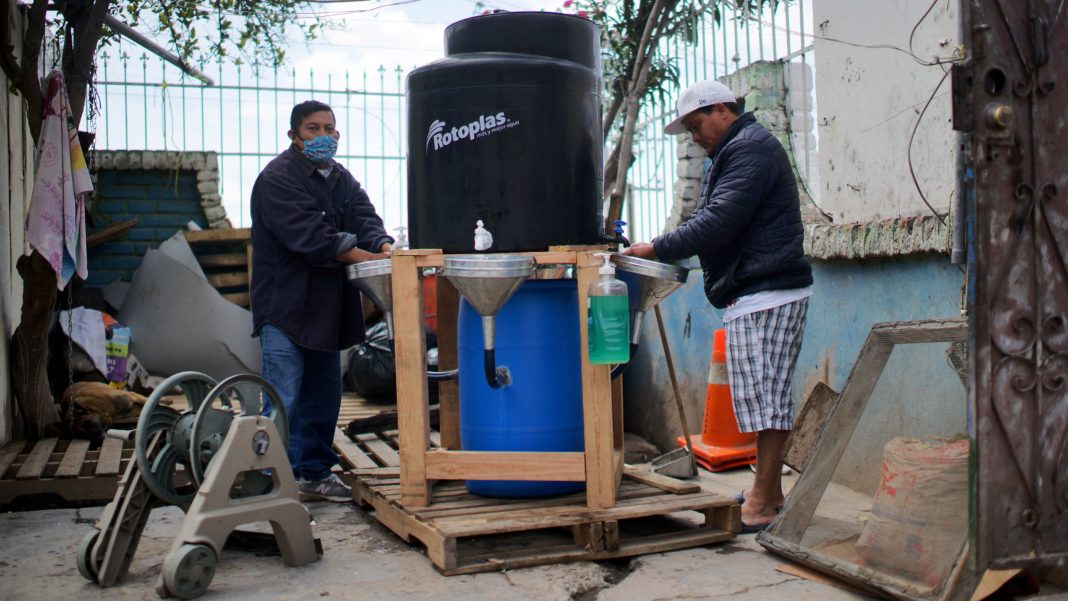Dr. Phil Canete lived in California but decided to move to Tijuana, Mexico, with the aim of being closer to the migrants in the shelters, where every day he tries to prevent cases of COVID-19 from occurring.
For the past few weeks, Canete and some of his volunteer friends, from the group Alianza para la Salud Migrante, have installed water tanks in the shelters, so that migrants can wash their hands constantly and even if the supply in the city fails.
"In the pandemic it is incredibly important that they wash their hands, we have installed four tanks in shelters where there are more migrants and where they are refugees in more compact spaces," the doctor tells La Opinion, from his clinic in the north of Tijuana.
Canete is arguably the last American volunteer to tour the shelters on a mission to prevent the coronavirus from reaching these migrants.
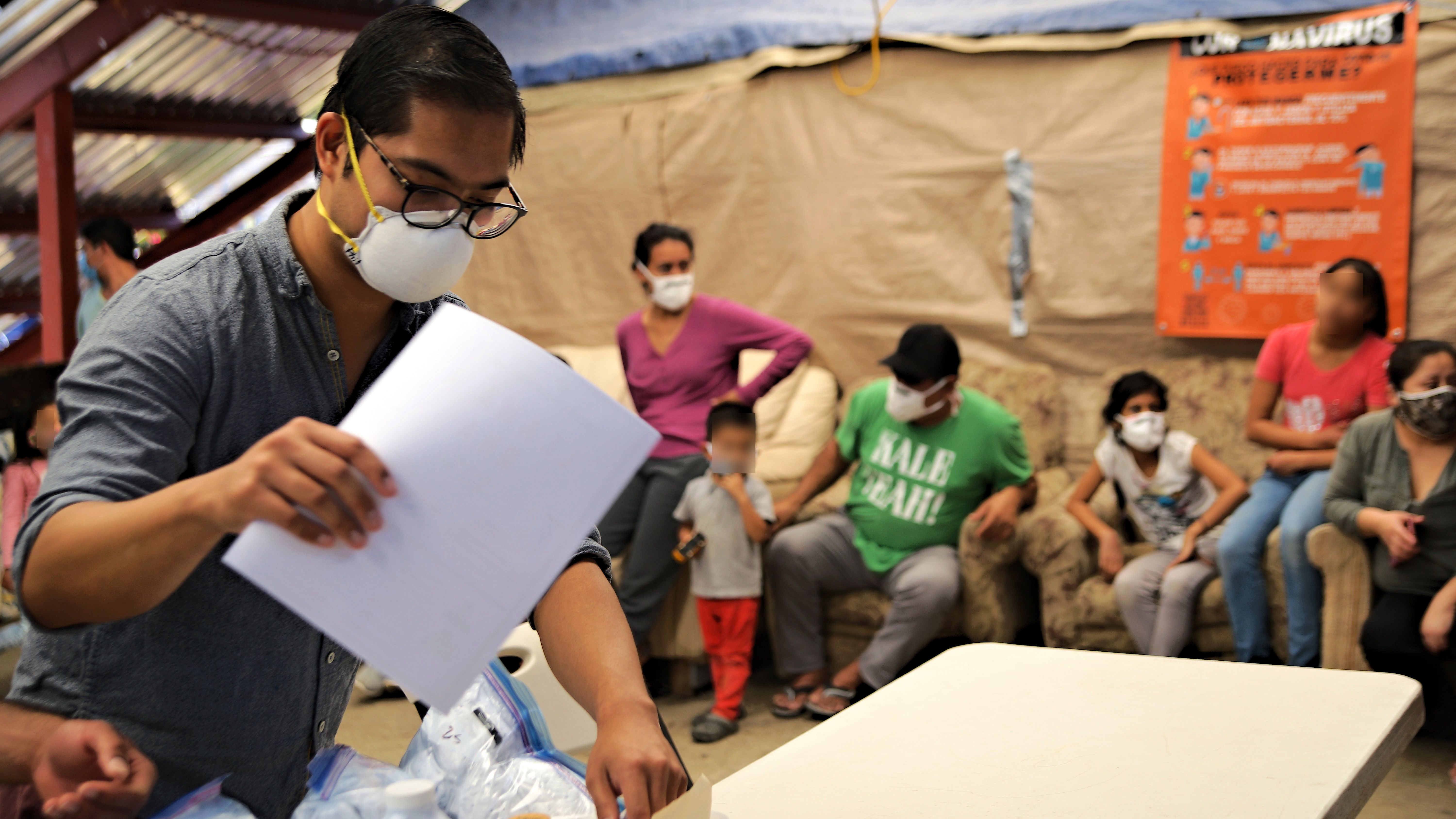
Difficulties in the midst of the emergency
Because of the contingency, the organizations that generally help migrant shelters stopped crossing into Tijuana.
This happened after Mexico and the United States decided, from March 20, to suspend border crossings of "non-essential" people.
And since the delivery of food and personal hygiene items is carried out by organizations, whose members have tourist visas – and their trip was considered 'not essential' – they found more and more obstacles to cross the border; until they finally stopped crossing.
On the contrary, Canete decided to move to Tijuana to be close to his patients and continue the work of the Alliance.
Installed in Mexico, the medical student continues his postgraduate classes at the University of California at San Diego (UCSD) online and thus no longer had to cross the border daily.
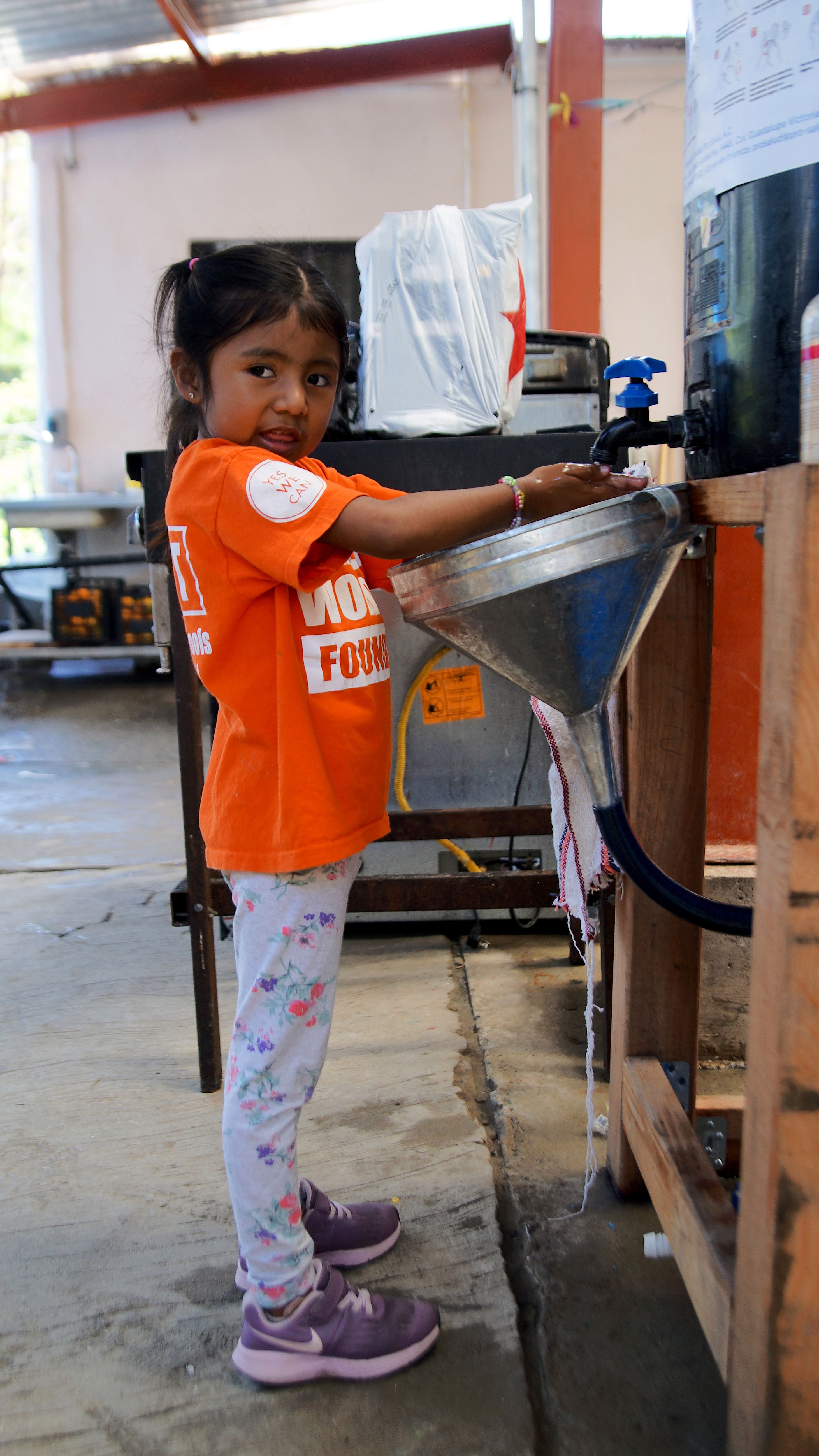
Queries by WhatsApp
Now, when he went to the Pro Amor Dei shelter – where 117 potential patients were waiting for him – the doctor gave them copies of a poster in which his phone number was written down, so that they could consult WhatsApp on any matter related to their health, regardless of what side of the border he is.
"If you have any discomfort, you can contact me on WhatsApp to tell me what's wrong. If you need advice, I give it to you and if you need medicine, I can bring it to you here at the hostel, ”explains the doctor.
A migrant asked for medication for Type 2 Diabetes and Canete told him that he will give him a two-month supply, which covers a good part of the period of confinement.
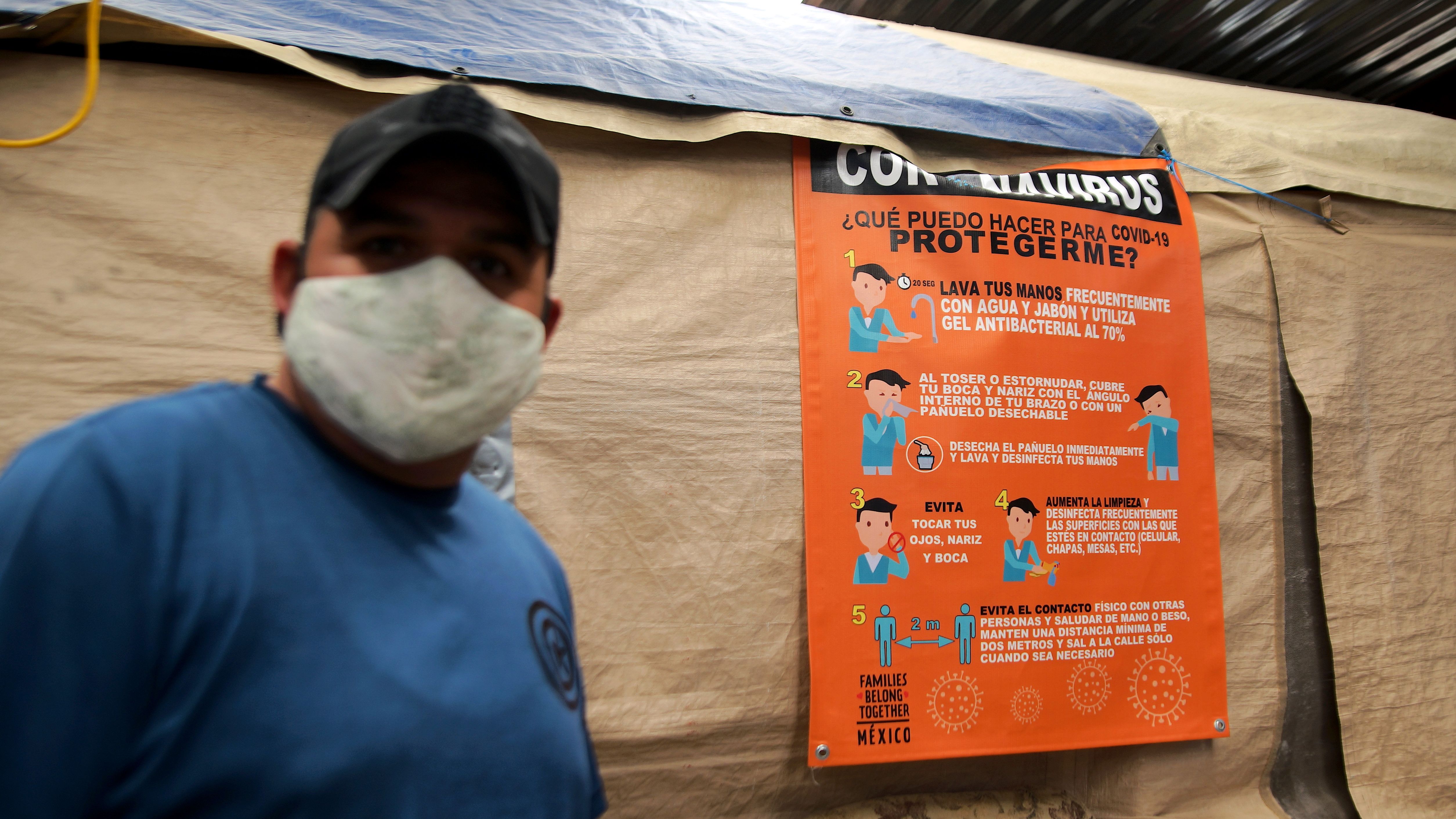
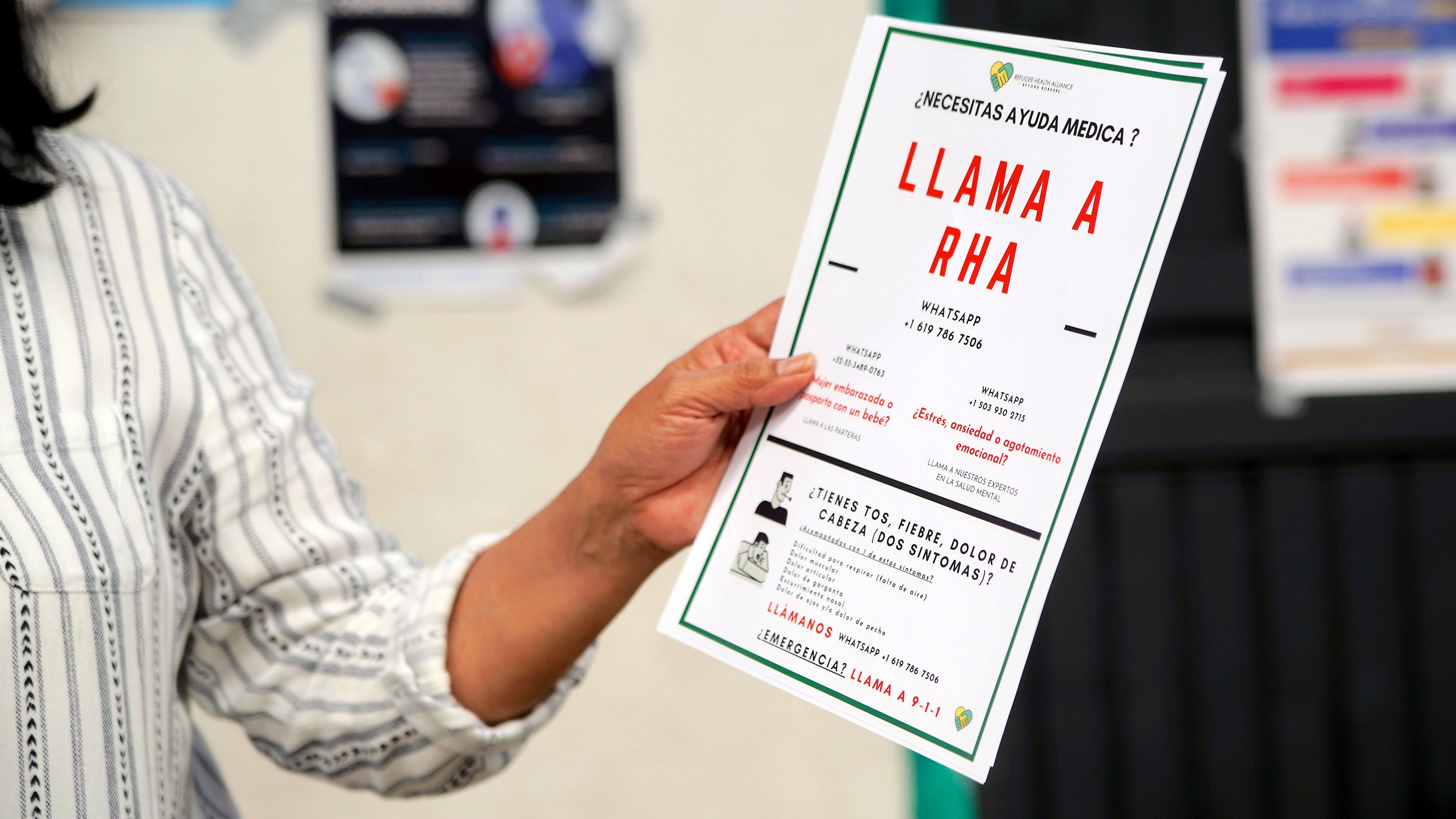
Leticia Herrera, director of Pro Amor Dei, says that the work of the doctor and his assistants "is a blessing."
The pandemic has caught on quickly in Baja California. The first cases were recorded almost a month after it started in San Diego. However, until this Saturday, San Diego had 100 deaths and Baja California 163, 110 of them in Tijuana. San Diego County has 3.1 million residents and the state of Baja California 3.6 million.
So far, no migrant shelter in Tijuana has detected cases of COVID-19 and Herrera wonders if the work of doctor Canete has anything to do with it.
On the doctor's recommendation, each person who arrives at the shelter receives antibacterial gel for the hands and sprays of a compound with chlorine for the soles of the shoes. If you do not have a mouthpiece, it is also provided.
At each visit he teaches children and adults how to wash their hands as well as possible and talks to them about the importance of keeping distance from each other.
Prepared with place for quarantine
Phil Canete also has a designated house, in front of the shelter, to which he plans to take the migrants in the event that one becomes ill with coronavirus. Until now no one has had to go to that place.
In fact, he works with the approval of Baja California Health authorities, who have asked him to notify if he finds any case of COVID-19 in the shelters.
To prevent infections, Canete has purchased seven containers or water tanks and has already installed four in some of the busiest migrant shelters.
This weekend he returned with La Opinion to the Pro Amor Dei shelter, a shelter that he chose to install one of the tanks because it has a large number of people and is one of the last two shelters in the city that still receives migrants, on condition of quarantine to prevent potential infections.
"In December (2019) we had 130 migrants, but some families left with relatives to spend time asylum cases are not processed," explains Leticia Herrera.
Dulce García, executive director of the Ángeles de la Frontera organization, commented that her group has provided resources to Canete and its volunteers to buy tanks to wash their hands and buy medicine.
"Apparently it is the last active group to help migrants in shelters and by supporting them, we help those who need it most at key moments," said the lawyer.
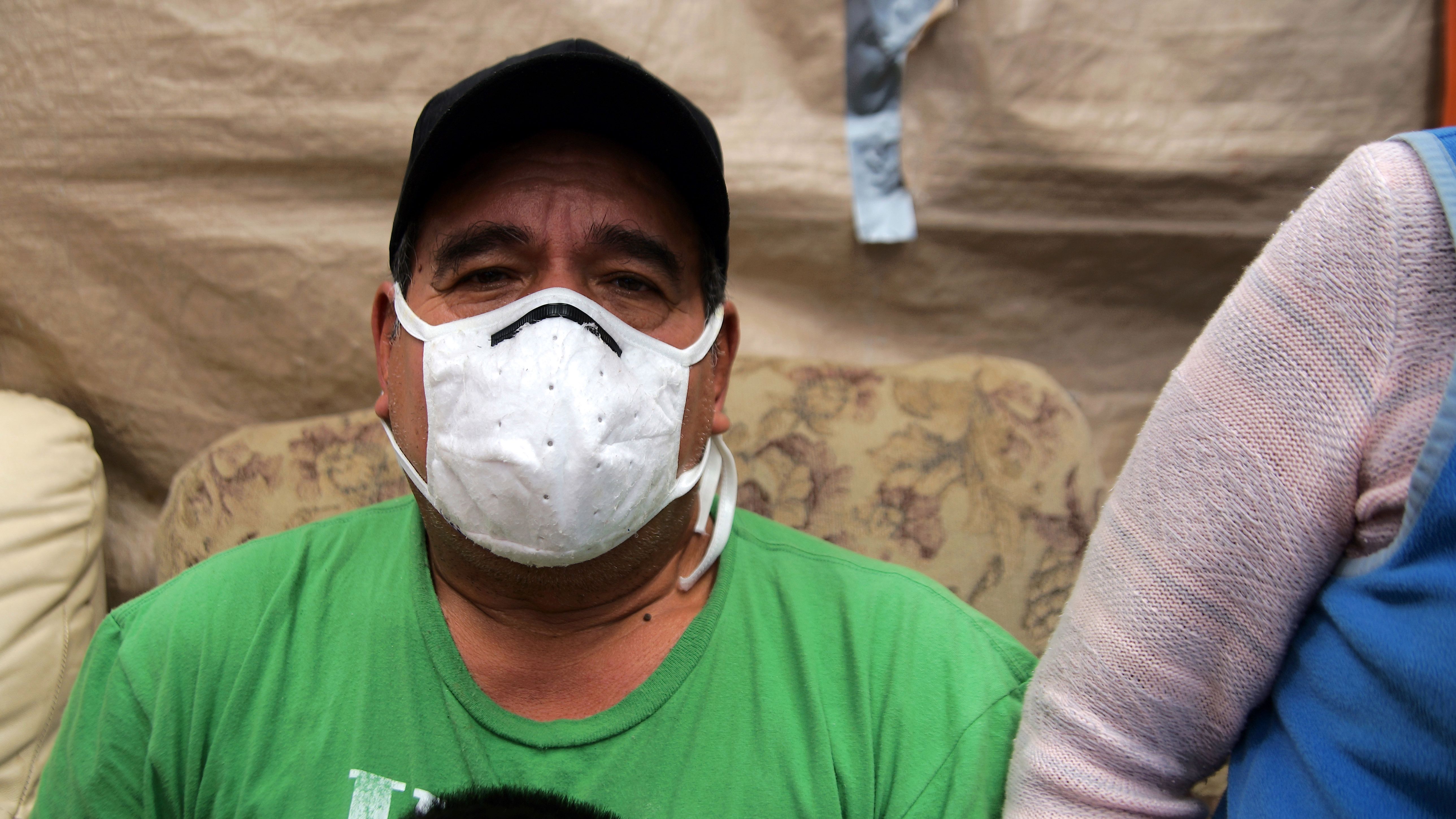
To help
Although Canete and the group of volunteers have worked with funds from Angels of the Border, they want to expand their services and today they are looking for contributions on a GoFundMe page at: gofundme.com/f/refugee-health-alliance-

